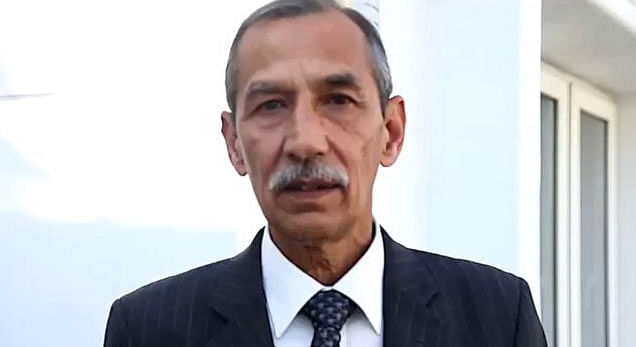
Amid the BJP's election rhetoric on Pakistan continuing, the Congress on Sunday released a report on national security it sought from retired Lt General D S Hooda, which suggested that India "should not rule out" dialogue with the neighbouring country but be prepared for "unilateral, limited military actions" against terror groups there.
The 44-page report 'India's National Security' also advocated that the relations with China "must be calibrated with care, based on the principle of reciprocity" while acknowledging that the future strategic rivalry between China and India is a "certainty" and a successful trading partnership "cannot overcome the reality of this competition".
Hooda, in his report, also emphasised that one cannot achieve true security if large sections of the population are "faced with discrimination, inequality, lack of opportunities, and buffeted by the risks of climate change, technology disruption, and water and energy scarcity" and wanted the country to address these issues.
“The ultimate test of an effective national security strategy lies in its ability to protect the common woman and man," he said in the report, which was publicised by Congress for comments from the public.
On Pakistan, Hooda acknowledged that the relations are at a "new low" and Islamabad's attempts to bring India to the negotiating table by "destabilising" Kashmir have not only failed but also hardened India’s stance.
"The events following the Pulwama bombing have established new red-lines in India's response to terror flowing from Pakistan. The international support to India’s air strikes at Balakot has also reinforced our policy on cross-border operations. However, there is also no doubt that military actions carry the risk of escalation and this needs to be factored into our future plans," he said.
He suggested a "sustained and long-term strategy to build consistent pressure" on Pakistan to desist from supporting terror and diplomacy and economic isolation would play a large part in this strategy. "When required, India must also be prepared for unilateral, limited military actions against terror groups in Pakistan. India must also not rule out dialogue with Pakistan," he said.
On the military capabilities, Hooda's report said India cannot be "oblivious to a revisionist and hostile Pakistan, the rising military power of China, and our own internal security challenges".
Acknowledging that there are "significant capability shortfalls" in the three services, the report said that most of the army's equipment is in the "vintage" category, and the induction of modern weapon systems is "extremely slow".
The air force is faced with a "reducing" fighter strength and a lack of air-to-air refuelers, Airborne Early Warning and Control platforms, and trainer aircraft while the Navy faces a "capability gap" in conventional submarines, unmanned aerial vehicles, mine counter measure vessels, anti-submarine warfare, and naval utility helicopters.
"Future conflicts will see an increased blurring between the tactical, operational and strategic levels of war. Our military preparedness will have to cater for a range of response options from surgical strikes to an all-out conflict. Technology, information, cyber and space will increasingly gain importance, as will the requirement of smart and motivated soldiers to
fight in this complex environment," the report said.
Hooda's report said the current global strategic landscape is marked by a "growing polarisation among the major powers - China, Russia, and the United States (US)" and the primary drivers of this polarisation are "not ideological, but political and economic in nature".
"Individual major powers are attempting to assert their national sovereignty by prioritising their unilateral policies over commitment to international cooperation. This strikes at the very heart of the structure of international relations created after the Second World War," the report said.
The report also noted that nationalism in pluralistic societies has also become an important political factor, which often uses economic issues for political purposes. "There is an inherent confrontation between the policy of insulation and protectionism, spearheaded by nationalism, and the policy of integration and expansion, represented by globalisation," it added.
When nationalist and protectionist sentiments threaten international cooperation in many countries across the world, it said, India must become a leading player supporting the benefits of international cooperation.
